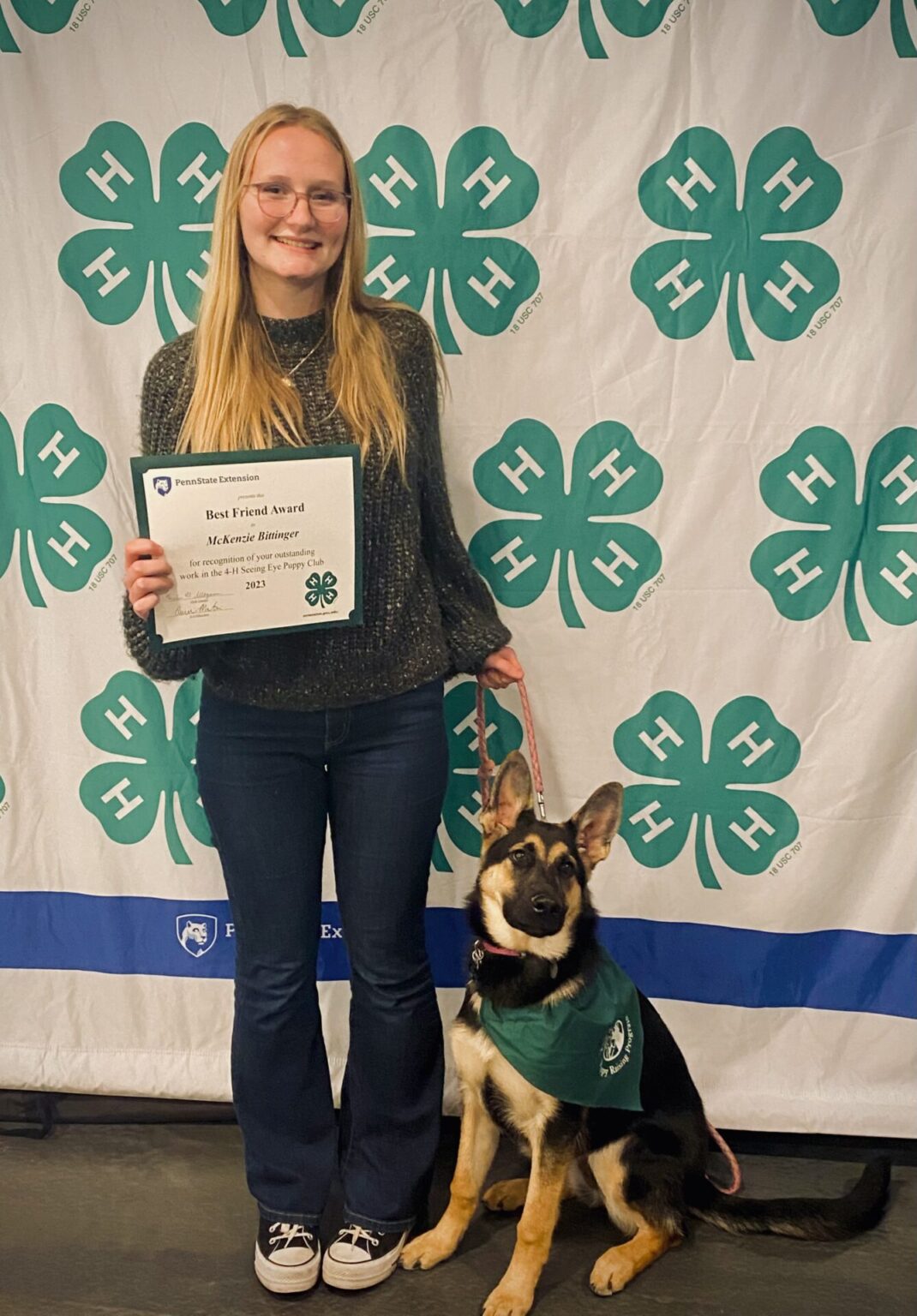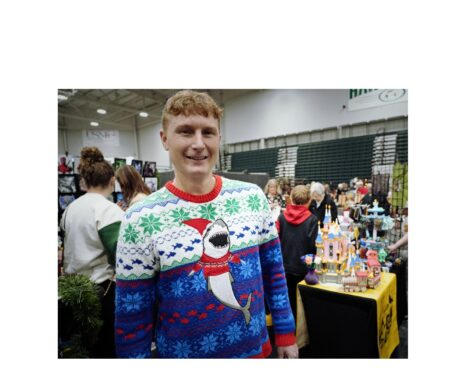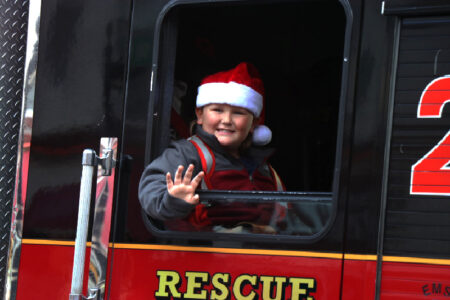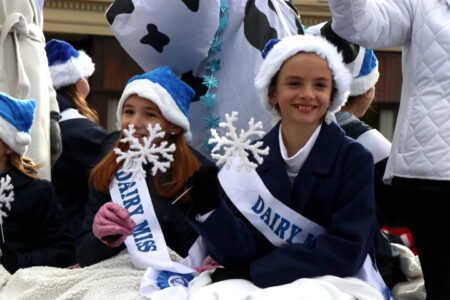WAYNESBORO – McKenzie Bittinger was about 9 years old when she knew she wanted to be part of the Seeing Eye Program.
Recently the 18-year-old Waynesboro resident was honored with a $1,750 scholarship toward her tuition at Penn State Mont Alto. To qualify, students must have raised at least two Seeing Eye puppies, demonstrated a high level of academic achievement and been active in their communities. Up to 260 people with blindness and low vision are partnered with a Seeing Eye dog each year.
“I’ve raised six dogs, and I am actively working on my seventh,” noted Bittinger, who is enrolled in the occupational therapy assistant program. “I want to help people.
“My grandparents, Jonelle and Denny Bittinger, started with Seeing Eye in 1994 and have been a part of it for 30 years. They’ve raised 24 puppies and fostered a puppy during COVID,” Bittinger said.
“Being at their house I was around the puppies, and I have a lot of memories of watching them train them,” added Bittinger, who has been a member of the Franklin County 4-H Seeing Eye Puppy Club, Paws for Independence, for eight or nine years.
The daughter of Megan and Zachariah Bittinger, Bittinger said she trains the dogs at her grandparents’ home. “They work with them as well. And I do a lot of training at the meetings.”
As a puppy raiser, Bittinger is responsible for providing “a loving and nurturing” home environment for about one year. During that time, she is required to teach basic obedience and house manners and bring the puppy to Seeing Eye Puppy Club meetings and socialization trips in the area.
All veterinary expenses are covered by The Seeing Eye, and a stipend is provided to help cover the cost of dog food for the puppy, which could be a German shepherd, Labrador retriever, golden retriever or a Labrador/golden retriever cross.
A total of 18,200 partnerships between individuals and dogs have been created since 1929. Dogs that don’t make the guide or breeding programs are called career change dogs and are placed with other service organizations, law enforcement, search and rescue agencies or adopted by the public.
Bittinger said she loves being involved in the Seeing Eye program and plans to keep raising puppies. “It is sad seeing them go, but the upside is you get another puppy.”





















